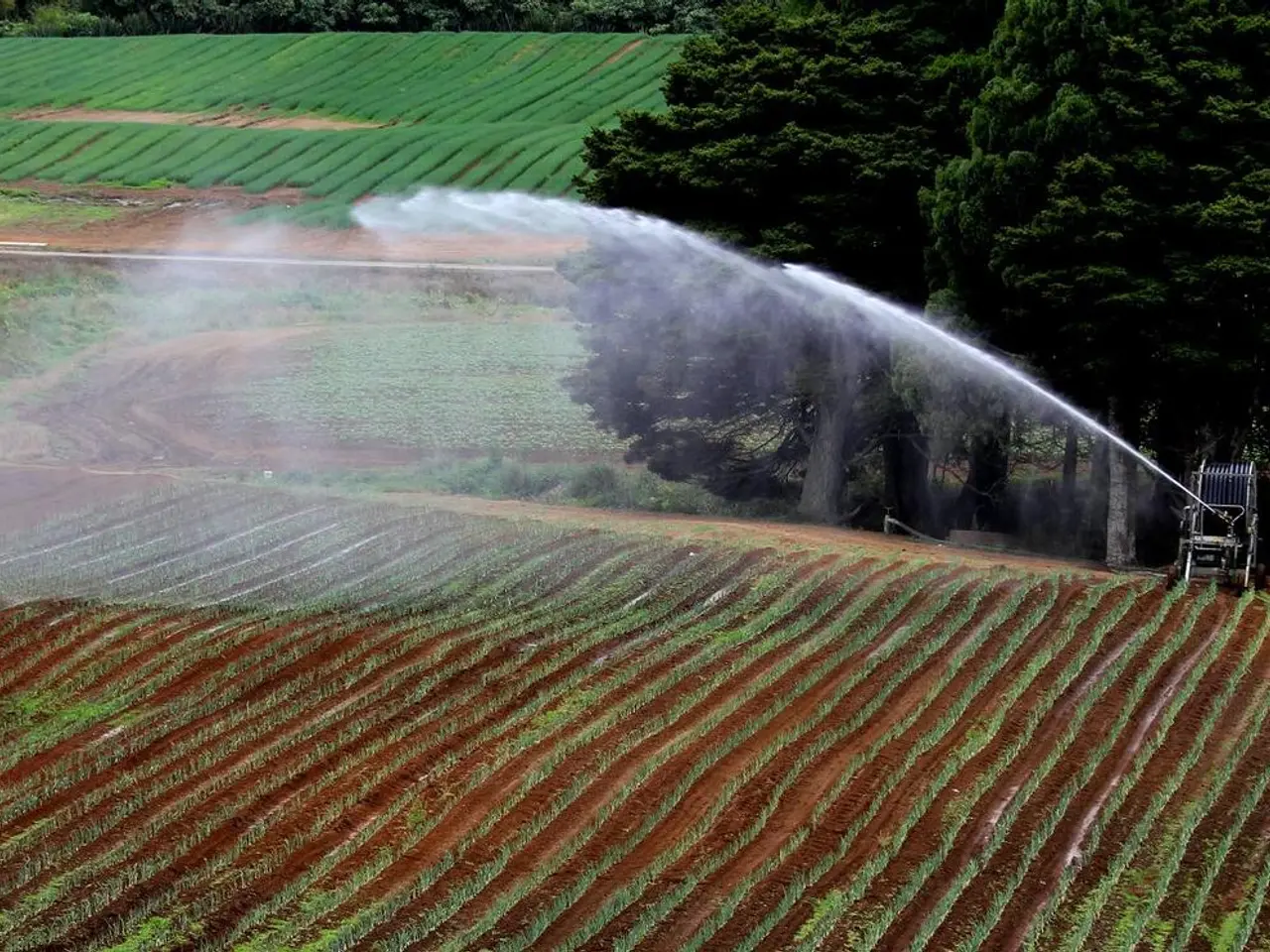Government is considering a state of emergency declaration in the agriculture sector, according to the Agriculture Ministry's recent proposal
Latvia Declares State of Emergency in Agriculture Amid Severe Weather Damage
Latvia's Agriculture Ministry has announced a state of emergency in the agricultural sector, effective from August 4 to November 4, 2025. This decision comes in response to the devastating impact of persistent frost, heavy rains, and flooding that have caused widespread damage to crops and agricultural land across the country.
The state of emergency is a crucial step to mitigate the crisis, as grain is a significant segment in Latvia's agricultural exports. Failing to fulfill supply contracts could have a significant impact on Latvia's reputation in international markets and overall export performance.
By mid-July 2025, about 51,500 hectares of farmland were reported affected or left unsown, resulting in estimated preliminary losses of around €63.9 million. Key crops damaged include cereals, legumes, potatoes, fruit, and berries. The excessive moisture has caused rotting of crops and delayed or prevented sowing and harvesting, severely impacting yields and Latvia's grain exports.
Current impacts include extensive crop losses and unsown fields, damage to export supply contracts, inability to cultivate fields due to saturated soils, financial distress for farmers, and increased prices for locally produced goods.
To address these challenges, a series of measures have been proposed under the state of emergency until November 4, 2025. These include financial relief mechanisms for farmers, postponement of tax payments, loan repayment deferrals, interest rate adjustments, rescheduling without penalties, and force majeure status for farmers. The government is also actively seeking emergency support and compensation for farmers from the European Union budget.
Experts and authorities warn that the recovery from this crisis could take three to five years given the severity and scale of damage. The emergency declaration is primarily procedural to fast-track assistance and mitigate legal and financial risks for farmers, helping stabilize the agricultural sector amid ongoing adverse climate impacts.
The adverse weather conditions since May 2025 have caused flooding of crops in many regions of Latvia. The Agriculture Ministry estimates that by July 10, farmers had reported 51,498 hectares of agricultural areas damaged or not sown, causing an estimated loss of €63.886 million. The issue is particularly acute for cooperative societies, which market members' produce, mainly for export.
Cattle farms have also been affected by the adverse conditions. Excessive moisture has caused grain, legumes, potato, and other crops to rot in the fields in many places. Spring frosts severely damaged blooming fruit and berry trees, as well as prolonged rains and floods during the summer months.
The Ministry proposes that by declaring a state of emergency, relevant authorities can implement legal solutions for farmers affected by adverse weather conditions in 2025, such as not imposing penalties or other appropriate measures. The actual extent of the damage could be much higher, as not all farmers have submitted their reports so far.
Delays in farming operations have resulted in germination of unharvested crops, affecting their quality. In many places, it was impossible to plant crops in time this year, where sowing never began and the fields are still uncultivated. Excessive soil moisture has prevented farm machinery from accessing fields, delaying or making it impossible to cultivate and harvest crops.
The Ministry underlines that the current unfavorable agricultural situation due to prolonged rains and flooding raises serious concerns about farmers' ability to meet their commitments. President Edgars Rikevics has called on the government to declare a state of emergency in agriculture, so that farmers could receive necessary support more efficiently. The Ministry has submitted estimates of the impact of the 2025 adverse weather conditions on farmers to the European Commission and has called for a possibility to be found to compensate Latvian farmers from the European Union budget for losses suffered.
- The excessive moisture and adverse weather conditions, such as frost and flooding, are causing significant problems for Latvia's agricultural sector, not only affecting crop yields and exports but also impacting the country's reputation in international markets and the overall economic stability of Latvia's farming communities.
- In an effort to alleviate the crisis, the government is considering cultural solutions, such as adjusting tax payments, loan repayments, and interest rates, as well as seeking emergency financial aid from the European Union budget, to help farmers adapt to the environmental challenges they are currently facing and to foster a more sustainable agricultural culture in Latvia for the future.







